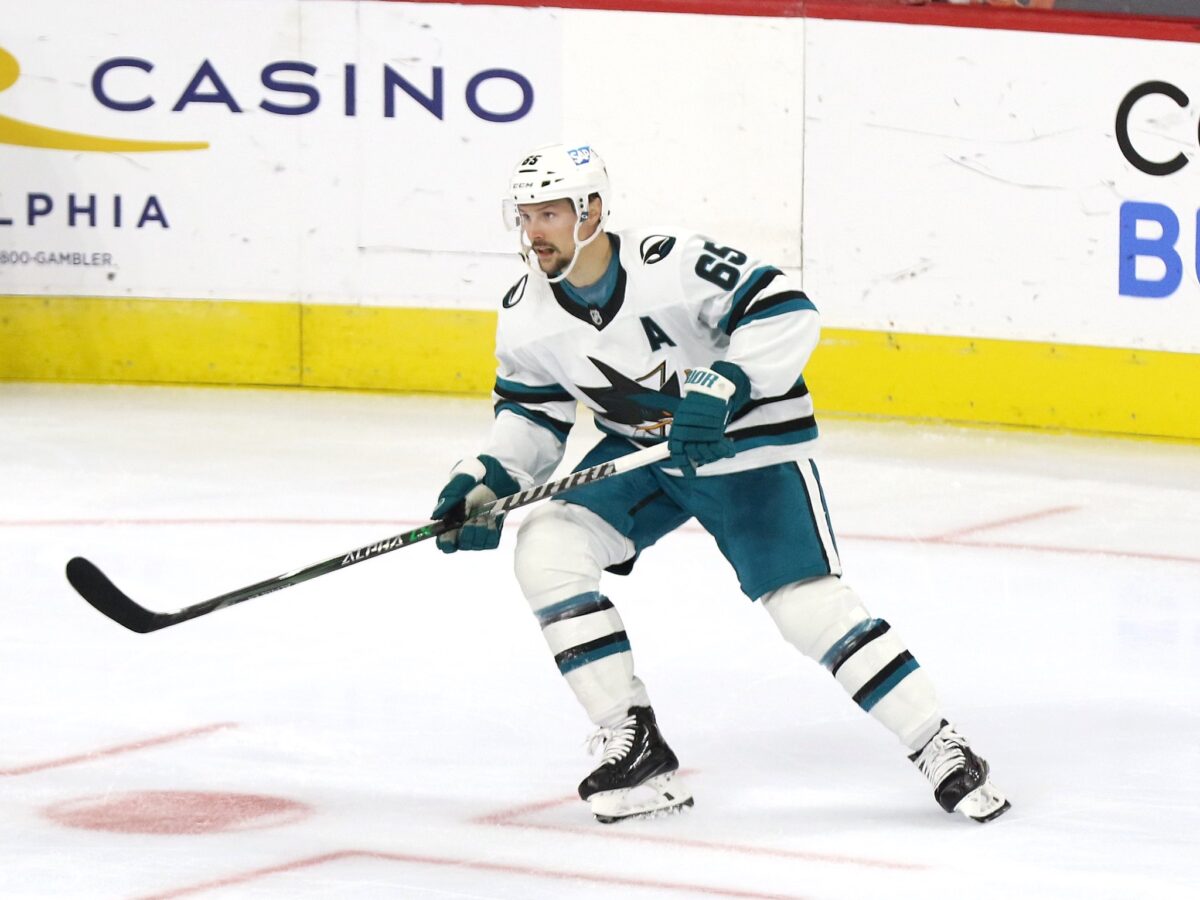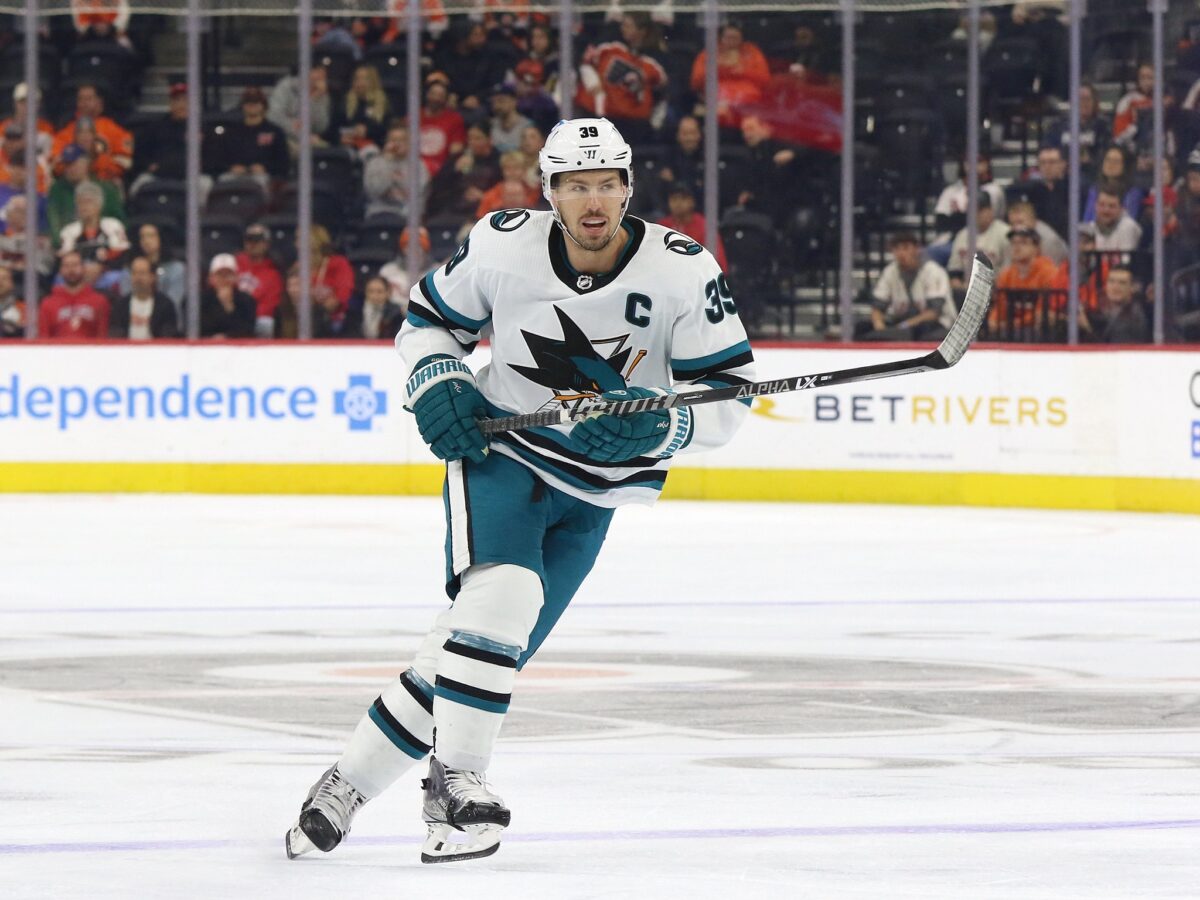The San Jose Sharks‘ poor start to the season could give fans the wrong first impression of their new bench personnel. It doesn’t necessarily say the new coaching staff is a wrong fit. However, it does say that the newly-implemented coaching systems are in fact a process, as David Quinn has stated numerous times. As cliche as it may sound coming from a head coach following a string of dreadful finishes to games, he’s not wrong in stating so. The truth is there are already very distinct differences between these Sharks and the last few sloppy seasons.
As a matter of fact, each game has displayed longer stretches of what the coaching staff expects out of their team for a full 60 minutes. Though the results may seem similar, those schemes are a night-and-day difference from the coaching philosophy of recent seasons. Here are some of the differences I’ve seen on the ice from David Quinn’s team.
Aggressive Blue Line Pinching
Perhaps the most encouraging sight this season is the Sharks’ aggressiveness from their blueliners pinching in the offensive zone. We’ve witnessed Quinn’s team keep the play alive frequently from their active defensemen pinching near the hash marks and along the half wall. This is also one of the main reasons Erik Karlsson has thrived like never before under Quinn’s philosophy with the freedom to use his natural instincts.

Meanwhile, Bob Boughner’s defense-first system was perhaps a little too defensive for the Sharks to create offense. That is to say, under the previous coaching staff, Sharks defensemen were noticeably conservative, nearly always backing off the puck in such situations. That led to the bad habits fans have seen this team repetitively fall into this season instead of stepping up to the puck carrier. Look for Quinn’s team to continue to grow in this area throughout the season.
Combining Active Sticks With a Physical Presence
David Quinn‘s system is about more than just taking away time and space by playing the body. It’s also about incorporating an active stick with that physical presence. Infusing both actions permits the opportunity to take the opposition out of the play while regaining puck control to begin the rush. That style of play dictates the pace and pushes the play the other way. Unfortunately, the Sharks have been a victim of using one without the other all too often. A lot of this has to do with resorting to bad habits formed during the previous three seasons.
Breaking Old Habits and Replacing With New
Speaking of bad habits, most of Quinn’s job over the first 18 games has consisted of breaking his team of those old routines. In addition, the biggest challenge of doing things differently is forming new habits to replace the former. The fact that the new system is indeed an evident work in progress may be the lone glimmer of hope for salvaging this season.
Related Links: Sharks May Have Found Their Rebound Coach in David Quinn
A visibly exasperated Quinn reiterated that sentiment following a 5-4 home loss to the Anaheim Ducks, a game in which they led 4-2 with just over four minutes remaining. Surrendering late leads are a trend that San Jose has gradually improved upon, but will have to continue to get better about in order to spare an even more disastrous season.
Personal Accountability
An overlooked attribute that has been severely lacking since the departure of former captain Joe Pavelski is personal accountability. Once the glue that held team roles and responsibilities together was separated, the Sharks have been unraveling ever since. This lack of accountability is precisely what has led to the unnecessary repetitive mistakes that have plagued them since the 2020-21 season.

For a locker room to hold each other accountable, it takes holding all players to the same standard. Not to knock the previous coaching staff, but there was evidence of players running to the beat of their own drum as former coach Boughner stated recently. This includes Evander Kane’s reported practice habits/off-ice issues. I also had some curious observations where Brent Burns was given top minutes despite repetitive mistakes, the type of mistakes Boughner would otherwise bench other teammates for. When all players are held to the same standard on and off the ice, team accountability is more defined. That same accountability is what Quinn is seeking to reintegrate into the team culture.
No More Collapse Defense
One of the most evident tactics of the Boughner era was his focus on defense, almost too much. In turn, the Sharks adopted a collapsing defense in front of their goaltender. While this does well to keep the opposition to the perimeter, it can result in your opponent having too much puck possession. Therefore, teams were very content to cycle endlessly around the Sharks’ zone, waiting for a seam pass or open shot from the point for a rebound. This collapsing approach last season was the main culprit of San Jose’s inability to start an attack or rush the other way as demonstrated in Exhibit A:
In this play, the Sharks’ defense does most of what a collapsing defense is supposed to do by forcing their opponents to the blue line. However, this gave the opposition — in this case, the Nashville Predators — lots of time and space at the offensive points. Eventually, it opened a center-lane drive toward the net that resulted in a pathetic ping-pong match goal in front of the Sharks’ goaltender.
This season’s team gives opponents less time to work at San Jose’s defensive blue line by getting a teal sweater in the face of the opposition. Whether it’s down low, along the boards, or at the blue line, San Jose has been more efficient at pushing teams out of the defensive zone to begin the rush. This aggressiveness has also resulted in more goals thus far, with the Sharks averaging 3.58 goals per game in their last 12. The problem is, after a 7-4 loss to the Detroit Red Wings, they’ve now surrendered an equal 43 goals in those 12 games. If they can scale down their 3.58 goals-against average in the coming games, the Sharks may have a chance to turn their season around yet.
Patience Is the Sharks’ Key to Success This Season and Beyond
For a franchise that’s not accustomed to having three straight playoff absences, patience is a difficult trait to have. But it’s important to remember, the Sharks are a work in progress for this season and beyond. The details of their game that continue to grow sharper with each game are a telling sign that this team is trending in the right direction. It may not result in a playoff berth this season. However, systemic progress is just one of the many reasons to be excited for the bright future on the not-too-distant horizon.
Original concept by Josh Fitzpatrick